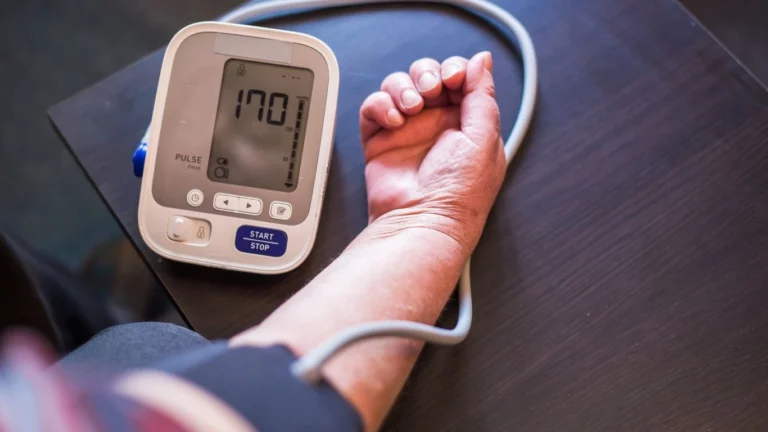High Blood Pressure and Immune System Links: What You Need to Know
Wondering how your blood pressure can affect your immune system? Keep reading to discover the connection and how managing one can help with the other!

Why Should You Care About Blood Pressure and Your Immune System?
When it comes to overall health, we’re often focused on managing specific areas like cholesterol levels or blood sugar, but blood pressure can have a far-reaching impact, even on how well your body fights off illness. High blood pressure (or hypertension) doesn’t just put strain on your heart—it can also mess with the delicate balance of your immune system. So, it’s important to understand how the two are connected and why keeping your blood pressure in check might also help keep you healthy in other ways.
The Link Between High Blood Pressure and the Immune System
Okay, so how exactly do high blood pressure and the immune system interact? Let’s break it down:
1. Chronic Inflammation and the Immune System
When you’ve got high blood pressure, your blood vessels are under more stress, and this can cause inflammation in the body. Chronic inflammation is a signal to your immune system that something’s off, and your body starts ramping up its immune response. Over time, this constant “low-level” activation can exhaust your immune system and make it harder for your body to respond effectively when you actually need it. It’s like keeping your immune system in overdrive 24/7. Not ideal!
2. Immune Cells and Blood Pressure Regulation
It turns out that certain immune cells can actually influence blood pressure regulation. Some research suggests that immune cells called T cells are involved in raising blood pressure, particularly in conditions where inflammation is present. This means that when your blood pressure is high, your immune system might be playing a bigger role than you thought, helping to keep that pressure up.
3. High Blood Pressure Weakens the Body’s Defenses
Chronic high blood pressure also affects the blood vessels, causing them to stiffen and narrow. This can limit blood flow, which in turn reduces how effectively your immune cells are delivered to different parts of your body. So, when your blood pressure is high, your immune system doesn’t have the best “roads” to travel on. This can result in a weakened defense against infections and diseases, making you more susceptible to illnesses.

How High Blood Pressure Affects Your Ability to Fight Infection
With your immune system being a bit off due to high blood pressure, it might struggle when it comes to fighting infections. Here’s how:
- Increased Risk of Infection: Since your immune system is always a little on edge, it’s not always prepared to handle the usual infections. You might find yourself catching colds more often or taking longer to recover from illnesses.
- Reduced Response to Vaccines: There’s also some research suggesting that people with high blood pressure may have a weaker response to vaccines. If your immune system is already compromised by chronic inflammation and constant activation, it might not react as strongly to vaccines, leaving you less protected.
- Impact on Autoimmune Conditions: For people with autoimmune conditions, high blood pressure might make things worse. Since autoimmune diseases involve the immune system attacking healthy cells, the added stress from high blood pressure might fuel more inflammation, making symptoms flare up.

How To Help Your Immune System and Control Your Blood Pressure
So, what can you do to manage both your blood pressure and keep your immune system in top shape? Here are a few things that can help:
1. Watch Your Diet
The food you eat has a major impact on both your blood pressure and immune function. Eating a diet rich in fruits, vegetables, whole grains, and lean proteins can help lower blood pressure and reduce inflammation. Avoid too much salt, processed foods, and saturated fats, as these can contribute to high blood pressure and stress your immune system.
2. Exercise Regularly
Regular physical activity helps lower blood pressure and boosts your immune system. Even light exercise, like walking or yoga, can improve circulation, reduce inflammation, and strengthen your body’s defenses.
3. Manage Stress
Chronic stress is a big contributor to both high blood pressure and immune suppression. Techniques like meditation, deep breathing, or spending time in nature can help calm your mind and keep both your blood pressure and immune system in check.
4. Get Enough Sleep
Sleep is crucial for both immune function and blood pressure regulation. Aim for 7-9 hours of quality sleep each night to give your body time to rest and repair itself.
5. Stay Hydrated
Drinking enough water helps keep your blood pressure stable and supports your body’s overall function, including the immune system. Aim to drink plenty of water throughout the day to stay hydrated and help flush out toxins.
When Should You See a Doctor?
If you’re struggling with high blood pressure and noticing that you’re getting sick more often or having trouble recovering, it’s a good idea to talk to your doctor. They can help you manage your blood pressure and might suggest specific tests to assess how your immune system is doing.
Also, if you have any existing autoimmune conditions or chronic health issues, it’s even more important to stay on top of both your blood pressure and immune system health.
Conclusion
High blood pressure isn’t just a heart issue—it can affect your immune system, too. Chronic hypertension can trigger inflammation, weaken your immune system, and make it harder for your body to fight off infections. But the good news is that by managing your blood pressure through diet, exercise, stress management, and good sleep, you can also give your immune system a boost. It’s all about balance, so take care of both to stay strong and healthy.
Appendices
FAQs
- Can high blood pressure make me more susceptible to infections? Yes, high blood pressure can weaken your immune system, making you more prone to infections.
- How can I lower my blood pressure naturally? Eating a balanced diet, exercising regularly, and managing stress are great natural ways to lower blood pressure.
- Does high blood pressure affect vaccine effectiveness? There is some evidence to suggest that high blood pressure might reduce how well your immune system responds to vaccines.
- What foods should I avoid to manage blood pressure and boost immunity? Limit processed foods, excess salt, and sugary snacks, as they can raise blood pressure and weaken your immune system.
- How does chronic inflammation affect the immune system? Chronic inflammation, often caused by high blood pressure, can keep your immune system on constant alert, weakening its ability to respond to real threats.
References
- National Heart, Lung, and Blood Institute (NHLBI). (2024). High Blood Pressure. Read Article
- Smith, J., & Johnson, A. (2023). Hypertension and the Immune System: Exploring the Connection. Journal of Cardiovascular Research, 35(4), 45-53.
- American Heart Association. (2024). Understanding Hypertension. Read Article
Disclaimer
Disclaimer: The information in this article is intended for general informational purposes only and should not be considered medical advice. Always consult with your healthcare provider for specific guidance regarding your health, blood pressure management, and immune system concerns.














